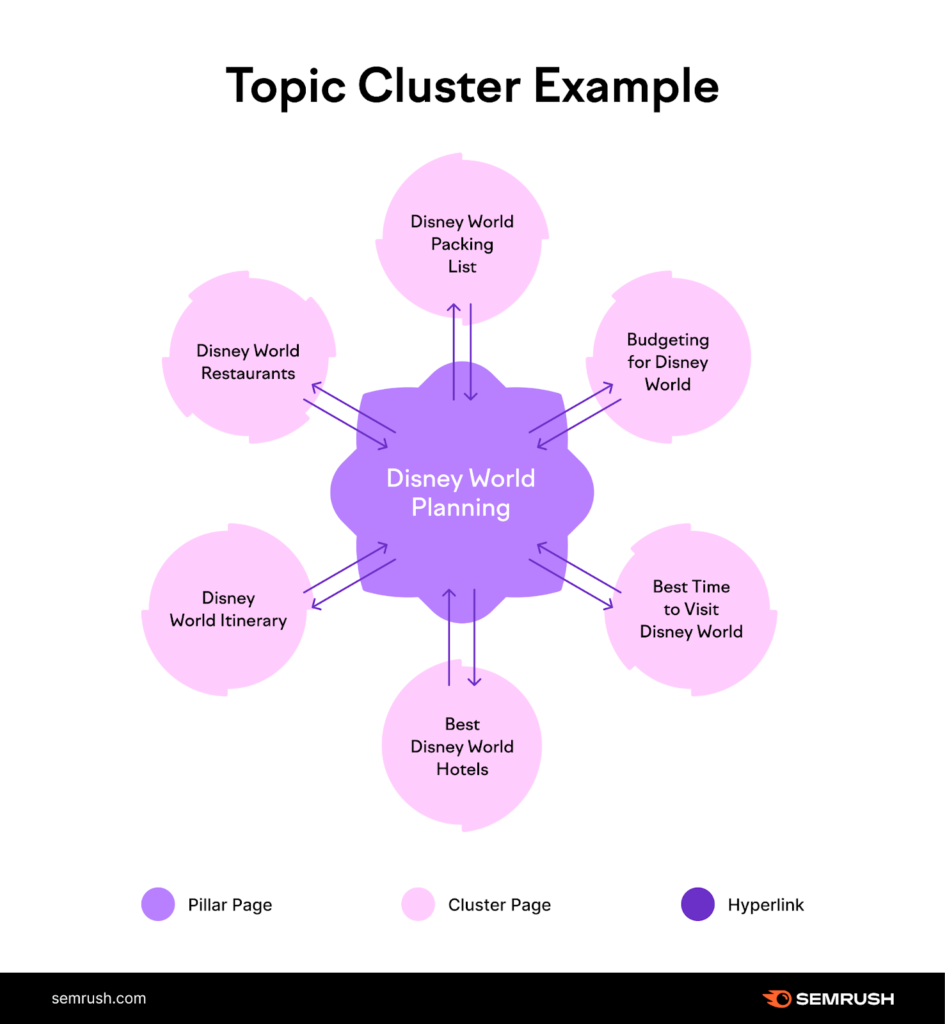Does content strategy refer to your website content or your social media content? How does content marketing tie in all of this? Do content marketers write the content too or is that someone else? What is content strategy consulting?
I got you. Let’s explore each one of these points so you will know what you need to do for your business or the company you work for. I am a copywriter and content strategist who offers content strategy consulting to my clients, either with a one-time project or on a recurring basis.
What is content marketing?
Content marketing is a strategic approach focused on creating and distributing valuable, relevant, and consistent content to attract and retain a clearly defined target audience. At its core, content marketing aims to provide value to users through informative, entertaining, or educational content that addresses their needs and interests. An important aspect of content marketing is distribution—where will your content be published so people see it and learn about you?
What does content marketing entail?
Central to content marketing is understanding your target audience through thorough research and analysis, including content audits and search engine optimization keyword research, with tools such as Moz, SEMRush, Ahrefs, or UberSuggest, which I use. We need to understand who your audience is, where they hang out, and what do they search for. This will vary greatly by industry. While it’s typical for B2C consumers to Google products they are interested in buying, this customer journey will often be different for B2B clients. Developing a clear plan will give you peace of mind for moving forward and connecting with new potential clients.
Content audit for your content strategy
A content audit involves evaluating your existing website content, including blog articles and web pages, to identify strengths, weaknesses, and gaps, which helps to refine future content strategies. Often, you will already have great pieces of content that can be updated—repurpose content when you can to capitalize on SEO juice already earned.
Keyword research for Google for your niche
Meanwhile, keyword research helps identify the language and topic clusters relevant to your audience, optimizing content for search engines and improving organic traffic. Choosing proper keywords must be strategic—we want to balance a good amount of search volume with a descriptive enough keyword yet aim for terms that do not have the difficulty of 100.
What are topic clusters in SEO content?
Topic clusters in SEO content involve creating new content around a particular topic to improve organic search visibility. Interlinking related pieces enhances brand awareness and authority on the subject. Best practices involve addressing various aspects of a topic, and attracting potential customers through comprehensive and informative content. Want to know more? Here is a great visual example from SEMRush.

Example of a topic cluster SEO strategy
Let’s say a flower shop wants to boost its online presence through topic clusters in SEO content. They could create a cluster around “Wedding Flowers.” The main pillar content could be an in-depth guide on choosing wedding flowers. Supporting content could include articles on bridal bouquet trends, centrepiece ideas, and seasonal flower availability. By interlinking these pieces, the flower shop enhances its authority on wedding flowers, attracting potential customers seeking wedding floral arrangements. It is also important to work with local SEO when possible. If the flower shop is located in Ottawa, a main keyword they can work on ranking for would be a variation of “wedding flowers ottawa.”
Content Creation for SEO
Consistently crafting compelling pieces of content is essential to your content marketing strategy. Whether it’s blog posts, videos, infographics, or social media updates, each piece should be tailored to resonate with your target audience and align with the overall marketing efforts. It is imperative to commit to doing this regularly. While advice varies on how often it is best to blog or post on social media, know it will take you 3-6 months to improve your rankings on Google with an optimized website with a strong backlink profile and at least 6-12 months when you are starting out.
Prioritize customer experience and accessible design
Prioritizing user experience ensures that content is easily accessible, engaging, and valuable to the audience, thereby fostering trust and loyalty. Accessibility in your digital presence is a must in today’s world and many websites, especially in Canada, are subject to accessibility regulations. This is a helpful resource.
For business owners and marketing agencies, understanding content marketing enables you to create effective strategies that drive engagement, enhance brand visibility, and ultimately, generate leads and conversions. By consistently delivering high-quality content that meets audience needs, businesses can establish themselves as authoritative voices in their respective industries, driving long-term success.
My unique content strategy consulting process
We all know content is essential to your online presence and for people to discover you organically through Google’s search results. But how do you create good content?
It starts at the beginning. Do you know the Brand Story of your business? What about the Purpose, Mission, Vision, and Values? Sure, the leadership team likely knows this, but does the team?
Effective content is rooted in consistent messaging and an origin story. Before we can write your website copy, we need to unearth the true story of your organization. This is where my unique interview process comes in. I meet individually with the founders and owners of the company, with the team, and with your clients. This is the first step.
Armed with years of journalistic experience, I ask the right questions to understand the guiding pillars of your business. Then, I take my findings and complete an extensive content audit and keyword research. Only after the foundation is laid, do I begin to write. The result is a comprehensive content marketing strategy which will meet the unique needs of both your organization and your clients. Rooted in consistency and measurable metrics, we set KPIs together and I use data analysis tools such as Amplitude, Google Analytics, and Google Search Console to analyze performance.
What to include in a content strategy?
In a content strategy, it’s vital to outline your organization’s clear marketing goals, aligned with digital marketing objectives. Identify types of content that resonate with your audience, ensuring relevance and value. Develop a content calendar to schedule when each piece of content will be published.
Editorial Calendar
The editorial calendar I create for clients includes the date and time of publication, links to relevant files, action items to still be completed, and a status update column. I ensure this is easy for everyone on the team to read and understand so there is buy-in across the board. A higher-level marketing plan lists the type of content that needs to be created, along with your content marketing goals and metrics we need to measure for ROI.
Remember to include diverse content types like website pages, blogs, videos, and infographics to cater to different preferences. Consistently deliver high-quality, relevant content to engage your audience and achieve your marketing objectives effectively. Whether you want to create new case studies for your niche, launch a podcast, or highlight your work visually through social channels such as LinkedIn, YouTube, X (formerly Twitter), or Instagram, a content plan will organize everything in one place.
What is great content? It takes into account what your audience is looking for, analyzes competitors, and delivers bigger value—more information or more entertainment.
What is the content funnel? Can you give a content strategy example?
The content funnel represents the journey users take from discovering a brand to making a purchase. In our example with a flower shop, the journey begins with awareness content like blog posts on floral arrangement tips. Imagine yourself googling questions about flowers and reading blogs online—this is often how people will discover you through organic search for the first time.
Applying the content funnel to our flower shop example
As users move down the funnel, consideration content such as video tutorials on DIY flower bouquets engages them further. They already know a little about flowers and want to learn more. Finally, decision-stage content like promotional offers and testimonials encourages them to purchase flowers from the shop, effectively guiding them through the buying process. At this step, they’ve consumed a lot of information, compared your offerings to others, and are ready to buy. How do you entice them to complete this vital action? What can you offer that others can’t? Importantly, how do you retain their patronage? This is often the last step of the content funnel—loyalty and retention. This can include personalized email recommendations based on past purchases or future occasions, exclusive content only available to existing customers, or other special offers.
Who writes the content?
Content creation is done best by professionals in their respective fields. For example, I create the content marketing strategy and write copy. Here is a little more about freelance content writing. My unique process creates the foundation for powerful storytelling and optimized content that performs. But I don’t claim to be a video editing wizard or a graphic designer. I always advise to seek out Social Media Managers to handle your distribution channels, a paid advertising person to handle your campaigns, and to have someone steward your brand on top of it. I find this model works the best—because we developed your content strategy together, I am empowered to write strategic copy and content while ensuring your brand is properly represented on socials and in other channels. You need someone to maintain a cohesive Brand Voice and Tone while you work on your business. Having disjointed team members will create disjointed content and your audience will be able to perceive the gaps, leading to a lack of engagement.
Content Strategy Consultation
In a one-on-one consultation, we discuss your business goals and expectations for the project. If you are not ready for a comprehensive content project, the consultation is perfect to understand where you are now and where you need to go. Often, organizations have great resources available in-house but are not sure how to best use them. This is where hiring an external consultant for a fresh outside perspective can work wonders to chart the right course and send you on the way to wonderful, measurable results!
